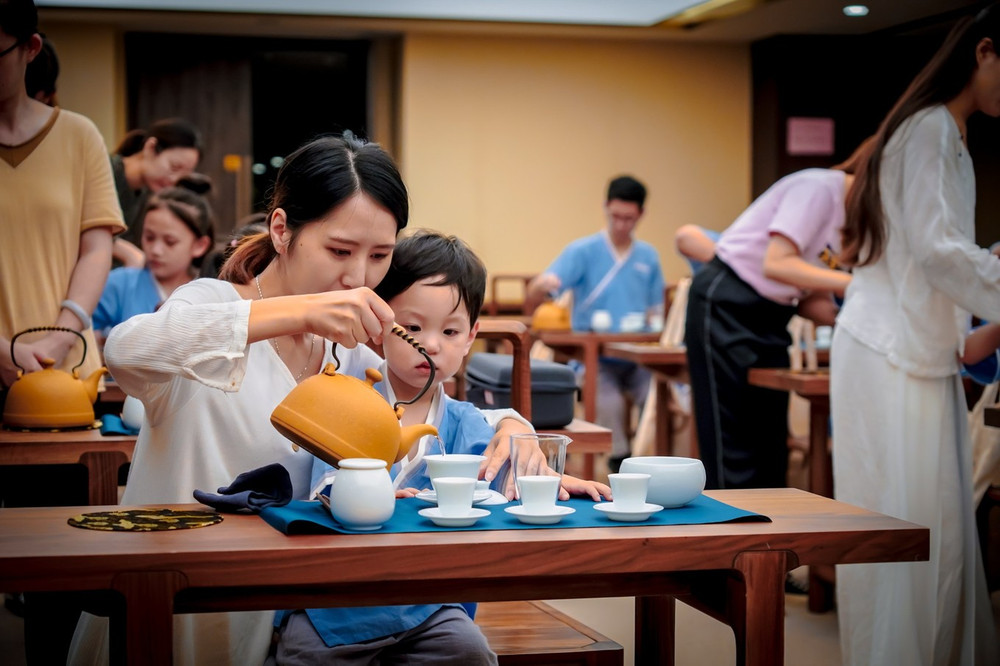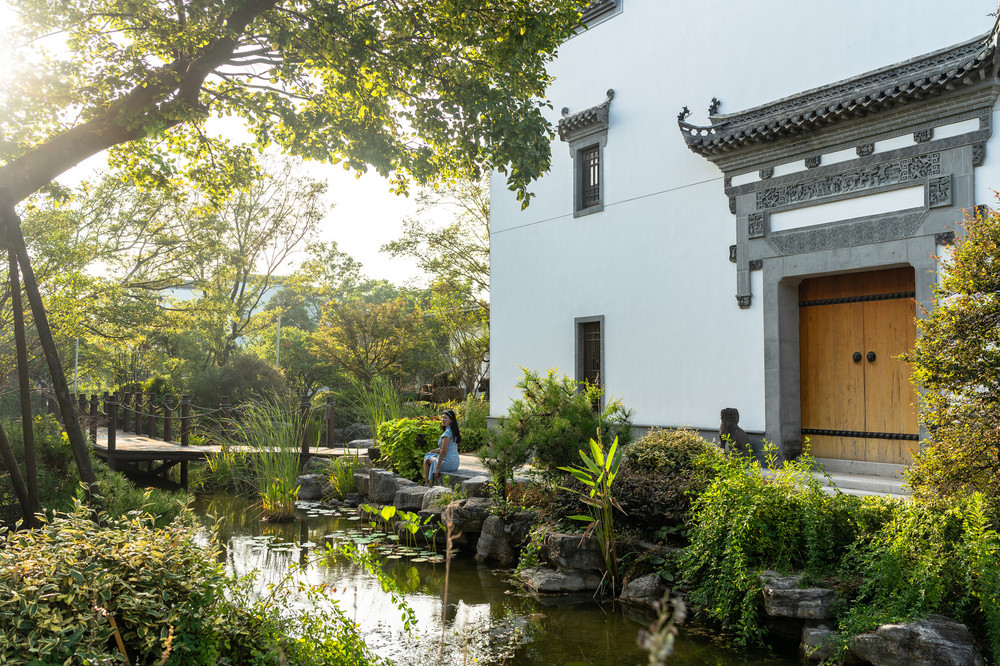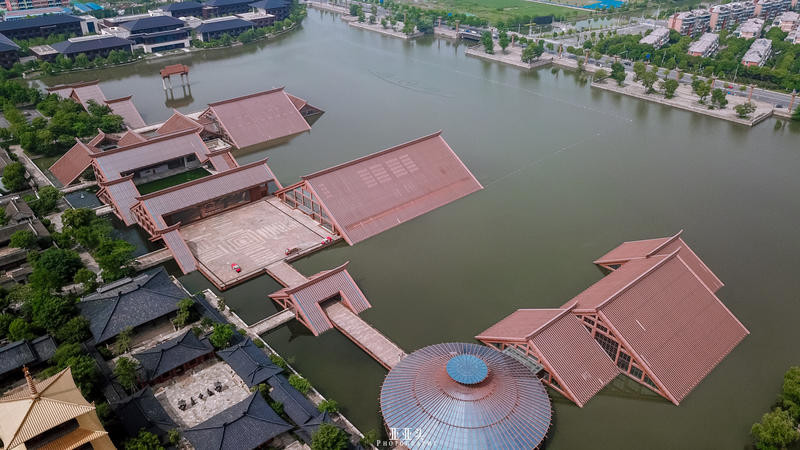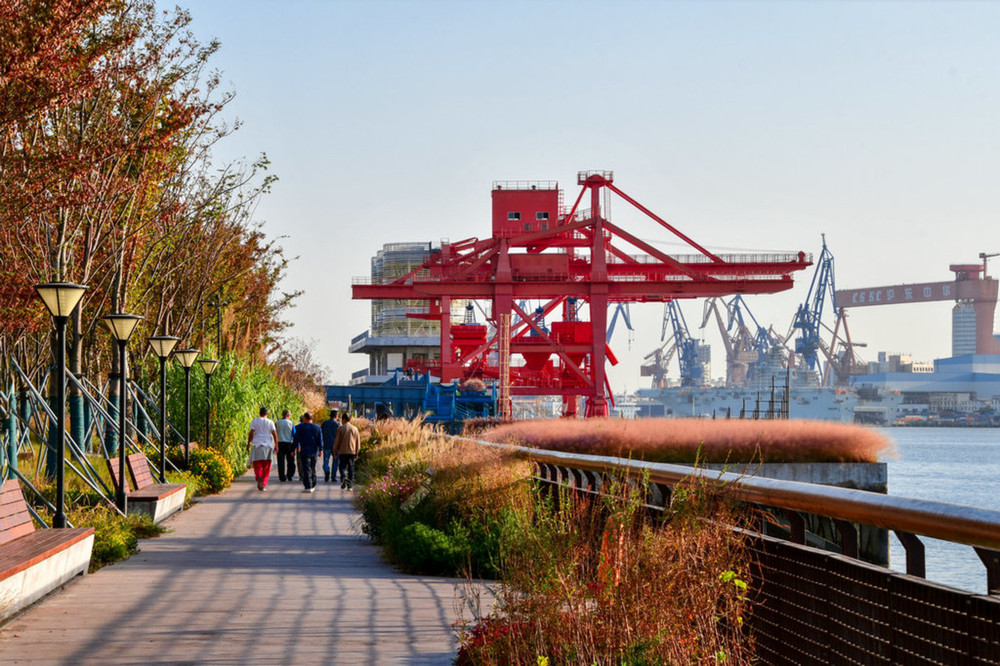The year 2021 marked the commencement of China’s ‘Fourteenth Five-Year Plan’ amidst a backdrop of subdued international tourism and a focus on domestic travel. This year has been pivotal for the Chinese tourism industry, as it grapples with the convergence of high-end consumption demands from returned outbound tourists and the mass market’s quest for quality experiences. The pandemic’s sporadic resurgence has introduced volatility and uneven performance into the tourism accommodation sector, casting a shadow of uncertainty over its recovery.
Against this complex landscape, the ’21st Century Accommodation Industry Summit (2021)’ was convened in Shanghai on December 14, under the theme ‘Persistence and Transformation: Finding New Momentum.’ The summit, hosted by 21st Century Economic Reports, aimed to dissect the domestic accommodation industry’s strategies for embracing new paradigms and charting novel developmental trajectories in the post-pandemic era.
Deng Honghui, Deputy Editor-in-Chief of Southern Media Group and Chief Editor of the 21st Century Newspaper Series, highlighted the resilience of the accommodation industry amidst the pandemic’s relentless challenges. He noted the industry’s need to adapt by offering a more diverse range of services to cater to the evolving market demands.
Yang Honghao, Director of the Industry Research Institute of the China Tourism Academy, underscored the profound implications of China’s ‘dual circulation’ economic model on the accommodation sector. He identified shifts in tourist consumption preferences, habits, and the industry’s operational paradigm. Yang Honghao’s strategic insights for the hotel industry included a domestic market focus, innovation in accommodation formats, a return to core operational and management practices, and a balanced approach to social responsibility and international expansion.
Zhang Xiaoqiang, Vice President of Jin Jiang International Group, Chairman of Jin Jiang Hotels, and Chairman of Jin Jiang Hotels (China Region), discussed the imperative for hotel companies to drive innovation in an environment fraught with uncertainty. Reflecting on the 20th anniversary of China’s accession to the WTO, he lamented the pandemic’s disruptive impact on what would have been a prosperous period for hotels of various ownerships. Zhang Xiaoqiang characterized the hotel industry’s development over the past two decades as a period of rapid growth, akin to pressing the fast-forward button.
—
This reformatted content presents the information in a structured and reader-friendly manner, making it easier to digest and understand the key points and details of the trip and industry insights.But the epidemic has pressed the slow-forward button or even the pause button. Although it is difficult, this is the current situation. On the other hand, Zhang Xiaoqiang also said that the epidemic has made the hotel industry rethink. The original models, experiences, operations and products actually cannot meet the new consumption demands. Finding growth in uncertainty is very difficult, and Jinjiang’s answer is ‘innovation’.
Sun Jian, General Manager of BTG Homeinns Hotel Group. As a senior practitioner in the domestic hotel industry, Sun Jian, general manager of BTG Homeinns Hotel Group, shared the transformation path of the domestic hotel industry in the second half of the post-epidemic era. In his opinion, exploring transformation is the next weathervane for the hotel industry. In the first half, hotel groups won the competitive landscape with ‘fast and large’ speed and scale. But in the transformation battle in the second half, the hotel industry needs to do ‘specialized and detailed’ work in a professional and refined direction. In this regard, Sun Jian believes that in this transformation and reform, the hotel industry should start from an innovative perspective and focus on four aspects: model, product, space and user.
Qian Jiannong, Chairman and CEO of Fosun Tourism and Culture Group. In the impression of Qian Jiannong, chairman and CEO of Fosun Tourism and Culture Group, the emergence of economy and business hotels is constantly enriching the product categories on the supply side. However, the supply of vacation category is still in short supply. Qian Jiannong pointed out that the reason why Fosun Tourism and Culture chooses the vacation field in laying out the accommodation industry is closely related to the overall environment of China’s accommodation industry. ‘First, structural adjustment. In China’s accommodation industry, whether it is a single business format or the business format itself, bad production capacity will definitely be eliminated. This challenge is long-term. Second, consumption recovery. What will the future consumption market recovery be like? And what is the trend of consumption in the recovery process? This poses a major challenge to the future development of our accommodation industry.’ Qian Jiannong said that as the tourism industries of various countries gradually enter the recovery channel, especially China is in a leading position in the recovery process, the future development of the entire tourism industry still has huge prospects. Especially for the accommodation industry, consumption upgrading and changes in levels are spurring the diversified development of the accommodation industry. Although affected by the repeated epidemics, the recovery of China’s accommodation industry is at the forefront of the world. In the post-epidemic era Chinese accommodation industry market, international hotel leading enterprises are also sparing no effort to seek support points for future development.

Qian Jin, President of Hilton Greater China and Mongolia. Qian Jin, president of Hilton Greater China and Mongolia, believes that ‘people often say that the only constant is change itself’. It can be predicted that under the dividend of national policies and with the post-epidemic era and for normalization, understanding the market, being resistant to risks and understanding talents are the basic requirements of the times for the development of international hotel groups in China, and will also be a window for China to show its services to the world. In the new era, I am full of expectations for the future of the hotel industry, and I believe everyone shares my goals and determination to embrace new opportunities and challenges. Qian Jin stated that international hotel groups must maintain a close connection with Chinese consumers to achieve sustainable development. They must always be highly sensitive to the Chinese market and consumers to move forward at high speed and steadily on the right track. In search of new momentum for development, domestic outbreaks of the pandemic have led to a new normal in the accommodation industry, rather than a return to business as usual.
Liu Yaning, Director and Vice President of Diaoyutai MGM Group, firmly believes in the development prospects of the domestic hotel industry: ‘Firstly, although the pandemic is severe, it will not affect the basic foundation of China’s high-end hotels; secondly, China’s hotel industry, especially high-end hotels, needs to ‘break the circle’. In fact, taking advantage of the pandemic, the demand structure of the domestic hotel industry has also undergone a transformation. Chinese people who cannot travel abroad for short-term vacations have started to turn to the domestic market, providing a new driving force for China’s luxury hotel industry under the pandemic. Regarding the ‘break the circle’ path for mid-to-high-end hotels, Liu Yaning mentioned that the key to scaling is cost control, and the key to differentiation is value creation, but these are not independent.The year 2021 marks the beginning of the ‘Fourteenth Five-Year Plan’. Currently, international tourism has not yet recovered, and with domestic tourism as the main body, coupled with the mid-to-high-end consumption demand from outbound tourism returning to the domestic market and the gradual release of mass market quality demands, this year has become a year for China’s tourism industry to fully explore its internal driving forces. Affected by the repeated outbreaks of the pandemic, the tourism accommodation industry started high and ended low, with uneven temperatures. Especially since the second half of this year, the continuous emergence of multi-point sporadic outbreaks in China has added uncertainty to the recovery of the accommodation industry. Against this backdrop, how will the competitive landscape and investment logic of the domestic accommodation industry evolve? Can the development path of branding, intelligentization, and quality improvement in the accommodation industry find new momentum to guide future sustainable growth?
On December 14, the ’21st Century Accommodation Industry Summit (2021)’, hosted by 21st Century Economic Report, was held in Shanghai. This summit, themed ‘Persistence and Transformation: Finding New Momentum’, focuses on the new normal in the post-epidemic era, exploring the way for the domestic accommodation industry to meet the new normal and explore new development. Deputy Editor-in-Chief of Southern Finance and Economics Media Group, Chief Editor of 21st Century Newspaper System, Deng Honghui, stated at the summit that although many tourism practitioners feel that this year’s operations are more difficult than last year, the accommodation industry is still recovering tenaciously in constant adaptation. The pandemic has changed people’s needs and forced industry development; the tourism accommodation industry needs to provide a more diverse range of categories for the changing market.
In the midst of change, seeking change, the domestic accommodation industry has experienced another year of pandemic normalization in the ‘Fourteenth Five-Year Plan’. According to statistical data released by the Ministry of Culture and Tourism, in the first three quarters of this year, the total number of domestic tourism trips was 2.689 billion, recovering to 58.5% of the same period in 2019. The total consumption of domestic tourism was 23.7 trillion yuan, recovering to 54.
Since the pandemic began in 2020, the supply side of the domestic accommodation industry has undergone a transformation, with some individual hotels being cleared out and market concentration moving towards leading enterprises. The domestic hotel industry has also entered an era of ‘great competition’ among major brand camps. Under this background, for hotel groups, the transformation from the supply side will become the core theme of the hotel industry’s development under the normalization of the pandemic. Among these, hotel groups need to seek new changes in terms of brand, business format, technology, etc. For hotel owners, under the normalization of the pandemic, new investment opportunities in the hotel industry have emerged. Different brand positioning, different business models, and different investment return expectations will determine the direction of hotel investment for owners.
As an important branch of the accommodation industry, the homestay industry has experienced ‘roller coaster’ development fluctuations in recent years. ‘Accommodation is not just accommodation, it is a school based on local natural education, combining a small accommodation space with a natural education school.’ Zhu Shengxuan, founder of Rural Companion Cultural Tourism, has opened up a lowland for the development of the accommodation industry in rural areas. ‘Homestays are the windows to the countryside, re-activating and bringing back young people.’
If value creation is done well enough and the quality attraction is strong enough, it can generate a spiraling rise. In Tang Jia’s view, Vice President of Marketing for the Asia-Pacific region of LUX* Hotel Management Group, the accommodation industry can be enriched with more diverse connotations. The meaning of ‘X’ in ‘acommodation + X’ includes rich content such as people, food, culture, luxury, customs, beliefs, history, and heritage. ‘For some destinations, our promotion of the destination may be as important as that of the tourism bureau. We hope to bring not only benefits to the hotel side but also equal returns to the local tourism bureau, local people, including owners and investors, to form a win-win-win situation.’ Tang Jia said, ‘Accommodation + X’ is not a complete increment of the hotel, but it allows guests to truly appreciate the distinctiveness created by the hotel and the deep resonance with the local culture.
Duration: 3 days, Time: December, Average cost per person: 3000 yuan, With whom: Friends, Activities: Cultural, Small bourgeoisie. Posted on 2021-12-23 at 13:22.Especially for the hospitality industry, the upgrading of consumption and the change of levels are driving the diversified development of the industry. Despite the impact of the repeated epidemic, the recovery of China’s hospitality industry is at the forefront of the world. In the post-epidemic era of China’s hospitality industry market, international hotel industry leaders are also sparing no effort in seeking support points for future development.
Hilton Greater China & Mongolia President Qian Jin believes, “It is often said that ‘the only constant is change itself.’ What is predictable is that under the dividend of national policies and with the post-epidemic era, in order to normalize, understanding the market, resisting risks, and understanding talents are the basic requirements of the times for international hotel groups to develop in China, and will also be a window for China to showcase its services to the world. In the new era, I am full of expectations for the future of the hotel industry, and I believe everyone has their own goals and determination, and we will welcome the new opportunity and new challenges together.” Qian Jin stated that international hotel groups must be closely connected with Chinese consumers to achieve long-term development. They should always maintain a high sensitivity to the Chinese market and Chinese consumers in order to move forward at high speed and steadily on the right track.
In recent years, domestic epidemics have occurred locally, and what the hospitality industry has faced is not the normal operation but the normalization of the epidemic. Diaoyutai MGM Group Director and Vice President Liu Yaning firmly believes in the development prospect of the domestic hotel industry, “Firstly, although the epidemic is severe, it will not affect the basic plate of China’s high-end hotels; secondly, China’s hotel industry, especially high-end hotels, needs to ‘break the circle.’ In fact, with the opportunity of the epidemic, the demand structure of the domestic hotel industry has also undergone a transformation. People who cannot go abroad for vacations in the short term have begun to turn to the domestic market, allowing China’s luxury hotel industry to gain new driving force under the epidemic.”
Regarding the ‘circle breaking’ path for mid-to-high-end hotels, Liu Yaning mentioned that the key to scaling is cost control, and the key to differentiation is value creation, but these are not independent. Creating sufficient value and possessing strong quality attraction can lead to a spiraling upward trend. According to Tang Jia, Vice President of Marketing for the Asia-Pacific region at Lishi Hotel Management Group, the accommodation industry can be enriched with more diverse connotations. The meaning of ‘X’ in ‘Accommodation + X’ includes a wealth of content such as people, food, culture, luxury in the wild, customs, beliefs, history, and heritage. “For certain destinations, our promotion of these destinations may be as important as that of the tourism bureau. We hope to not only bring benefits to the hotels but also to the local tourism bureaus, local people, including owners and investors, to create a win-win situation for all,” said Tang Jia. ‘Accommodation + X’ is not just a complete increment for hotels, but also aims to make guests truly appreciate the unique experiences created by hotels and the deep resonance with local culture.
As an important branch of the accommodation industry, the homestay industry has experienced ‘roller coaster’-like development fluctuations in recent years. “Accommodation is not just a place to stay; it is a school based on local natural education, combining the small accommodation space with a school of natural education,” said Zhu Shengxuan, founder of Xiangban Culture and Tourism, who has opened up a development opportunity for the accommodation industry in rural areas. “Homestays are the windows to the countryside, re-energizing and bringing back young people.”
Since the outbreak of the pandemic in 2020, the supply side of the domestic accommodation industry has undergone a transformation, with some individual hotels being cleared out and market concentration shifting towards leading enterprises, the domestic hotel industry has also entered an era of ‘great competition’ among major brand camps. Under this background, for hotel groups, the transformation from the supply side will become the core theme of the hotel industry’s development under the normalization of the pandemic. Among these, hotel groups need to seek innovation and change in terms of brand, business format, and technology. For hotel owners, under the normalization of the pandemic, new investment opportunities in the hotel industry have emerged. Different brand positionings, different business models, and different investment return expectations will all determine the direction of hotel investment choices for owners.
Despite the severe impact of the pandemic on the tourism industry, the investment transaction volume of the hotel industry this year is close to the figures of 2019, and in the Asia-Pacific region, China’s hotel transaction volume has surpassed Japan for the first time, indicating that Chinese hotel investors continue to enter the market.Tang Ming, Chairman and President of Shanghai Shimao Hotel Management Co., Ltd., and President of Shimao Star Hotels Group, predicted at the roundtable dialogue of the 21st Century Accommodation Industry Summit (2021) that 2022 will mark a year of frequent hotel asset transactions in China and the beginning of formal hotel asset management. He emphasized that hotel owners should not only value the premium that international management companies bring to the brand but also consider their innovation, operational capabilities, and localization efforts, which will be crucial for owners to assess.
Jiang Bo, Deputy General Manager of Luneng Taishan Resort Club and General Manager of the East China Regional Hotel Asset Management Center, stated that as an owner, he prioritizes the fit with the project. He believes that the focus should not be on cooperation alone but on achieving a win-win situation with a mechanism for mutual checks and balances. In the selection process of a management company, differences should be acknowledged and embraced, with the ultimate goal of finding common ground for mutual success.
Zhang Ye, Vice President of Sunac Cultural Tourism Group, highlighted that hotels are part of the broader cultural tourism industry, with the potential for commerce and themed entertainment to integrate and improve hotel investment returns. He noted that in the new era, consumer behavior and needs have changed, necessitating reforms in the industry to avoid becoming an alternative option for consumers.
Zhu Xiaogang, President of Yongle Huazhu Hotel Management Co., Ltd., reflected on the hotel industry’s rapid development, propelled by real estate, and viewed the current environment as the start of a new cycle of changes in business and consumer models for all industry enterprises.
The prestigious ‘Golden Pillow’ Hotel Awards Ceremony 2021, initiated by ’21st Century Economic Report’ in 2004, celebrated its 18th year of accompanying the development of China’s hotel industry. The event is dedicated to discovering excellent examples, spreading benchmark values, promoting industry reforms, and exploring future directions. It is renowned in the industry and holds wide reputation and credibility among business readers and high-knowledge groups. This year’s awards, which use a big data model to evaluate the real reputation of hotels, have added a ‘Smart Hotel Cases’ category to highlight outstanding practices in digital technology usage for operational efficiency and consumer experience enhancement.
Nearly 90 honors, including those for hotel groups, hotel management companies, hotel brands, hotel owners, and individual hotels, were announced, showcasing the exemplary strength that leads the continuous progress of China’s accommodation industry under the new normal of the pandemic.
Appendix: The 18th ‘Golden Pillow’ Hotel Awards Shortlist
I. Comprehensive Category Main Awards
A. Hotel Figures
– 2021 Best Leader in China’s Hospitality Industry:
– Mr. Zhang Xiaoqiang, Vice president of Jinjiang International Group, chairman of JinJiang Hotels, and chairman of JinJiang Hotels China Region
– Mr. Sun Jian, General Manager, BTG HOMEINNS Hotels (Group) Co., Ltd.
– Mr. Jin Qian, Area President, Hilton Greater China and Mongolia
– Mr. Tyrone Tang, President, Shimao Star Hotels Group
– 2021 China’s Best Hotel Manager:
– Mr. Jerry John, General Manager, W Shanghai – The Bund
– Mr. George Edward, General Manager, Club Med Joyview Anji Resort
– Mr. Kenny Zhang, General Manager, Grand New Century Hotel Haining
– Ms. Kathy Ma, General Manager, Hilton Zhoushan
– Ms. Grace Li, General Manager, Liantou Peninsula Hotel & Resort
B. Hotel Groups/Management Companies/Owners/Hotel Brands
– 2021 China’s Most Popular Hotel Group: Marriott International, Huazhu Group, Wyndham Hotels & Resorts
– 2021 China’s Most Investment-worthy Hotel Management Company: New Century Hotels & Resorts, Dossen Group, Wanda Hotels & Resorts
– 2021 China’s Most Popular Hotel Brand: Club Med, LUX* Resorts and Hotels, Primus
– 2021 China’s Most Popular Serviced Residence Brand: Ascott
C. Individual Hotels
– 2021 China’s Most Popular Business Hotel: The Ritz-Carlton, Beijing, JW Marriott Hotel Chengdu, InterContinental Shanghai Ruijin, Four Seasons Hotel Shenzhen, Kerry Hotel Pudong, Shanghai, InterContinental Century City Chengdu, Hilton Suzhou, Hyatt Regency Wuhan Optics Valley.2021 China’s Most Popular Resort Hotels:
– Fuchun Resort
– DESERT STAR HOTEL
– JZ HOTEL
– GIRAFFE MANOR
– HOTEL SOUTH TAIHU
– InterContinental Xishuangbanna Resort
– Hilton Linzhi Resort
– Wonderland Resort, Hangzhou
– Hilton Dalian Golden Pebble Beach Resort
2021 China’s Best Newly Opened Hotels:
– The Londoner Hotel
– Club Med Lijiang
– W Changsha
– Hilton Shanghai Songjiang Guangfulin
– Mumian Beijing Daxing International Airport
– Shangri-La Shougang Park, Beijing
– Wenzhou Marriott Hotel
2021 China’s Best Luxury Hotels:
– Wanda Reign on the Bund
– Maison Albar Hotels Guiyang
– Regent Chongqing
– W Suzhou
– W Shanghai – The Bund
2021 China’s Best Design Hotels:
– Rosewood Beijing
– Diaoyutai Boutique Hotel Chengdu
2021 China’s Best Service Hotels:
– WESTLAKE STATE GUEST HOUSE
– The Ritz-Carlton, Tianjin
2021 China’s Best Parent-child Hotels:
– Club Med Joyview Anji Resort
– Yinrun Jinjiang Castle Hotel
2021 China’s Best Serviced Residences:
– K11 ARTUS Residence
2021 Excellent Intelligence Application Cases:
– Hanting Hotel – Full Process Digital Operation Service
– Dali International Hotel – The First Future Hotel in Southwest China
2021 China’s Leading Hotel Group:
– JinJiang Hotels China Region
2021 China’s Outstanding National Hotel Management Company:
– Risesun Hotel Management CO.,LTD.
2021 China’s Outstanding Upper Midscale Business Hotel Brand:
– Hampton by Hilton
2021 China’s Outstanding Stylish Business Hotel Brand:
– Le Joy Hotel
2021 China’s Influential Business Hotel Brand:
– VIENNA HOTEL
2021 Influential Midscale Foreign Hotel Brand:
– Kyriad Marvelous Hotel
2021 China’s Innovative Hotel Brand for Experience Space Design:
– Eeril Hotel
2021 China’s Most Influential National Hotel Brand:
– HanTing Hotel
2021 China’s Influential Business Hotel Brand:
– JINJIANG INN
2021 China’s Outstanding MICE Hotel:
– Sheraton Grand Beijing Dongcheng Hotel
2021 China’s Outstanding City Skyline Hotel:
– The Langbo Chengdu, in The Unbound Collection by Hyatt
2021 The Most Popular City Business Hotel in East China:
– Shanghai Marriott Hotel Riverside
2021 Outstanding Business Hotel in City Central Business District:
– Grand New Century Hotel Haining
2021 The Most Attractive City Business Hotel:
– LONGYAN JINGHUA FLIPORT HOTEL
2021 China’s Outstanding Airport Hotel:
– Garden Lane Meilan Airport
2021 China’s Outstanding Theme Resort Hotel Cluster:
– Oriental Salt Lake City Hotel Cluster
2021 The Best Garden Culture Resort Hotel in East China:
– Hilton Zhoushan
2021 China’s Outstanding Seaside Resort Hotel:
– Hilton Zhoushan
2021 The Most Popular Seaside Resort Hotel in South China:
– Wyndham Grand Plaza Royale Shuangyue Bay Huizhou
2021 Outstanding New Travel Lifestyle Hotel:
– Hilton Garden Inn Sanya
2021 China’s Outstanding Parent-child Resort Hotel:
– Liantou Peninsula Hotel & Resort
2021 China’s Outstanding Parent-child Study Travel Hotel:
– New Century Resort Dazong Lake Yancheng
2021 Selected Parent-child Resort:
– LE’BONNY
2021 China’s Outstanding Newly Opened Business Hotel:
– Crowne Plaza Xiamen Jimei Seaview
2021 China’s Excellent Newly Opened Resort Hotel:
– Courtyard by Marriott Liuzhou Sanjiang
2021 The Most Expected Newly Opened Hotel in North China:
– Oakwood Hotel & Apartment Daxing Beijing
Reported by 21st Century Economic Report journalist Cao Enhui in Shanghai.









